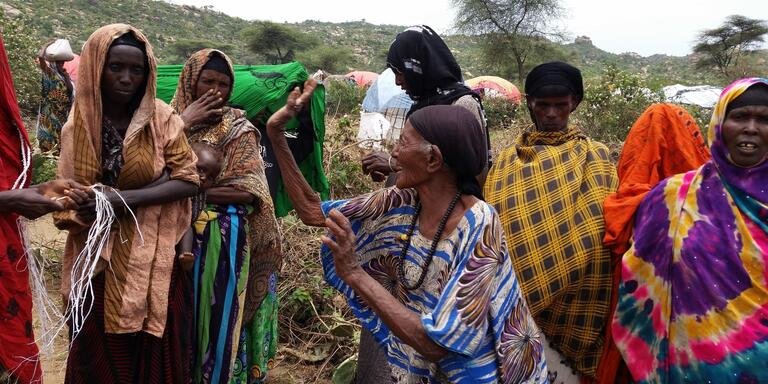Date: Sun, 5 Feb 2017 13:32:38 +0100
“Now, at the age of 84, I have to learn how to live in a small traditional hut,” says Ibado Samatar.
She used to be a farmer. When her family was attacked by bandits and her farm was razed to the ground, Ibado had no choice but to leave. Before that, she had never left her home town of Mechare, in the western part of Oromia region.
Now she has to live in a small “buul”, a traditional hut in Somali language. Together with 6,000 families, she has fled from Oromia region into the eastern Somali region because of conflict and drought.
Surviving
Many of the more than 6,000 families sheltering in Anot Keble in Somali region have been here for over a year, along with a smaller number of new arrivals. After losing their homes, social support systems and livelihoods, Ibado and other displaced people here are struggling to survive. The camp has become a central location for people who have been displaced and people on the move. Most displaced families are trying their best to construct temporary shelters for their families under the scorching sun, using whatever materials they can find.
Inta Abdulahi, 37, travelled for five days to Anot Keble to escape from the harsh drought conditions.
“I used to be a farmer, now I am a displaced person,” she says. “There is no water, no shelter nor food.”
Since they arrived at Anot, her six children have been sleeping on the ground, exposed to biting snakes and other threats.
Many stories
The stories are many. There is the mother carrying her 7-months old baby while building a shelter for her family. There is also the older man who has seen too much, and is sitting tired and weary in the unforgiving heat.
But there is also hope, as children quickly become friends playing together in the sun. They all are survivors and hopeful that life will get better.
Providing emergency assistance
Together with partners, including with government authorities from the Oromia and Somali regions, the UK Department for International Development (DfID) and UN Office for Coordination of Humanitarian Affairs (OCHA), the Norwegian Refugee Council (NRC) has taken a lead in reaching the displaced populations with emergency shelter and household utensils.
Humanitarian needs in Anot Keble are critical, and the NRC team will continue its urgent work, at times traveling for long hours to reach those in need with much needed emergency assistance.

